#dor daedeloth
Text

Upon the confines of Dor Daedeloth, the land of Morgoth, Fëanor was surrounded by Balrogs. Long he fought on, and undismayed, though he was wrapped in fire and wounded with many wounds; but at the last he was smitten to the ground by Gothmog, Lord of Balrogs.
#my art#silmarillion#silm art#the silm fandom#the silmarillion#silm elves#balrog#feanor#feanaro#tolkein
2K notes
·
View notes
Text
While writing Fire for @zealouswerewolfcollector I ended up thinking a lot about the parallels Tolkien creates between Fëanor and Fingon.
Most remarkably, how similarly he describes the moment of their final battle and death:
There upon the confines of Dor Daedeloth, the land of Morgoth, Fëanor was surrounded, with few friends about him. Long he fought on, and undismayed, though he was wrapped in fire and wounded with many wounds; but at the last he was smitten to the ground by Gothmog, Lord of Balrogs, […]
And then:
At last Fingon stood alone with his guard dead about him; and he fought with Gothmog, until another Balrog came behind and cast a thong of fire about him. Then Gothmog hewed him with his black axe, and a white flame sprang up from the helm of Fingon as it was cloven.
Fëanor and Fingon both lead their people to a battle against Morgoth with a tragic end. They are both left fighting on the battlefield alone, surrounded by fire, and perish at the hand of the exact same Balrog.
It is a seemingly strange parallel to make because these two characters often appear as complete opposites in the narrative. Fëanor divides his people by burning the ships at Losgar - while Fingon unites the Noldor by saving Maedhros. Where Fëanor begins a rebellion for his own cause of regaining the Silmarils - Fingon seeks ‘not his own, neither power nor glory.’
And yet, despite their differences, Fëanor and Fingon are the quintessential Noldos of the first age. Fingon becomes everything that Fëanor prophesizes for the Noldor in Beleriand:
We are threatened with many evils, and treason not least; but one thing is not said: that we shall suffer from cowardice, from cravens or the fear of cravens. Therefore I say that we will go on, and this doom I add: the deeds that we shall do shall be the matter of song until the last days of Arda.
Fingon's lament in The Lay of Leithian echoes Fëanor‘s prophecy (the lines were adapted later to be Gil-Galad’s own hymn):
The song of Fingon Elves yet sing,
captain of armies, Gnomish king,
who fell at last in flame of swords
with his white banners and his lords.
Fingon indeed becomes the epiphany of the exiles: the combination of his remarkable heroism, valor, and the final doom that awaits him. Essentially, the fundamentals of The Silmarillion itself.
It is no wonder then that during the rebellion of the Noldor, Fingon the Valiant is moved by Fëanor’s words: ‘Yet I am not the only valiant in this valiant people’ (my emphasis).
They share an ambition, a capacity for leadership, and a skill of voice and strength, not to mention their connection to Maedhros, and the element of fire.
Letting Fëanor and Fingon die almost the exact same way signals the beginning and the end of an era for the Noldor in Beleriand: the death of their first King and, for all intents and purposes, the last.
Fëanor leads the Noldor to Beleriand, and with Fingon, they cease to exist as united people. Turgon becomes King, but who does he rule beyond Gondolin? The remainder is scattered and isolated after the Nirnaeth Arnoediad, the Wars of Beleriand are effectively ended until the Valar take action, and the Doom of Mandos is completed.
For the sons of Fëanor, more than anyone, the Nirnaeth and the fall of Fingon signify a return to the very beginning. A cycle that starts all over again: with the death of their King in flames, their homes destroyed, their hands stained, and being left with nothing but an unfulfilled Oath to regain the one remaining piece of Treelight.
The fight for victory in Beleriand begins with Fëanor and ends with Fingon. It will have to continue in a new book with a new story that goes beyond the fate of Fëanor‘s Silmarils.
The War of Wrath shifts the narrative to a new continent, with a new generation of Elves and their High King - who will die in flames, much like Fëanor and Fingon, fighting before the very gates of Mordor.
But that certainly merits another post.
#everyone's favorite feisty kings#tolkien really loves death by fire#and balrogs#which makes ecthelion a very underrated badass#feanor#fingon#gil galad#doom of mandos#noldor#beleriand#the silm meta#the silmarillion#tolkien#musing and meta#cw: death
142 notes
·
View notes
Text
But as the host of Fingolfin marched into Mithrim the Sun rose flaming in the West; and Fingolfin unfurled his blue and silver banners, and blew his horns, and flowers sprang beneath his marching feet, and the ages of the stars were ended. At the uprising of the great light the servants of Morgoth fled into Angband, and Fingolfin passed unopposed through the fastness of Dor Daedeloth while his foes hid beneath the earth. Then the Elves smote upon the gates of Angband, and the challenge of their trumpets shook the towers of Thangorodrim;
The sheer epicness of that scene... No wonder Morgoth & his troops hid in Angband and pretended nobody was home.
122 notes
·
View notes
Text
"There upon the confines of Dor Daedeloth, the land of Morgoth, Fëanor was surrounded, with few friends about him."
Me: Fëanor had friends!!???
Me, again: Does this mean he considered his subordinates/soldiers 'friends'!?? Awww.
Me, yet again: Or did it mean among his own people nobody liked Fëanor and would be loath to support him in truth?
Me, for the final time: *gasps* Was he betrayed!!!???
#feanor#silmarillion#the wording is singular i feel#what do you mean few friends about him#explain!!!#the possibilities are endless
4 notes
·
View notes
Note
Hi! I saw your post saying that suggestions for the scenes from the silm daily to draw are welcome :) so let me send you a passage that just screams 'epicness' and it would be amazing to see your interpretation of it :)
But as the host of Fingolfin marched into Mithrim the Sun rose flaming in the West; and Fingolfin unfurled his blue and silver banners, and blew his horns, and flowers sprang beneath his marching feet, and the ages of the stars were ended. At the uprising of the great light the servants of Morgoth fled into Angband, and Fingolfin passed unopposed through the fastness of Dor Daedeloth while his foes hid beneath the earth. Then the Elves smote upon the gates of Angband, and the challenge of their trumpets shook the towers of Thangorodrim;
Hi ! Thank you for sending this because I love this scene so very much ! I couldn't draw something quick and simple for this, I may have overdone it. I finished the sketch of a 14 pages comic.
Now that I've announced it, I'm honor bound to finish it ! It will take a few weeks because it takes a lot of time to draw the lineart and to paint, and i can only work on this during my breaks. Also, I want to try some new coloring styles to challenge myself even more.
To make you wait here some previews of the sketch

24 notes
·
View notes
Text
Morgoth: The First Dark Lord: Part 2
Map of Beleriand
Ring of Barahir
After his return to Middle-earth, he is often referred to as Morgoth Bauglir. Bauglir is a Sindarin name meaning “the Constrainer.”
He sets his sights on the Elves that didn’t make the journey to Valinor. The Sindar, under King Thingol, live in Doriath. Círdan and the Teleri live at Falas, and Denethor and the Nandor live in Ossiriand.
Morgoth moves against these Elves in YT 1497, sending his army of Orcs to surround Thingol in Doriath. Thingol manages to contact Denethor, who comes to their aid. The Orcs of Morgoth, caught between the two armies of Elves are defeated. As the Orcs flee north, they are unexpectedly routed by the Dwarves of Mount Dolmed. The Orcs on the western front continue to besiege Círdan’s Elves at the Havens of Falas for the following few months, until the coming of the Ñoldor would draw them away.
Speaking of the Ñoldor - with the world in darkness, Fëanor leads the Ñoldor to rebel against the Valar. Many of those following Fëanor take part in the Kinslaying, in which many Teleri are killed so that Fëanor may claim their ships. They sail east to Beleriand, landing at Losgar. When Fëanor burns the ships, it not only signals to Fingolfin that he and the rest of the Ñoldor are now stranded in Aman, but also draws the attention of Morgoth. In a preemptive strike, he sends forth a force of Orcs and Werewolves which passes through the Ered Wethrin, or “Shadowy Mountains,” and attacks the Elves. Though the Orcs greatly outnumber the Ñoldor, the Elves possess great power within them thanks to the Light of Valinor. They defeat Morgoth’s force. The Orcs retreat across the plain of Ard-galen and back toward Angband.
At this time, the Orcs that had besieged Círdan come north to aid their allies. However, they are pushed back to the Fen of Serech. In total, very few Orcs survive the 10-day battle. Fëanor pursues this small group to Dor Daedeloth, the Land of the Shadow of Horror.
There, the Balrogs come out from Thangorodrim. Fëanor fights valiantly against the demons of Morgoth, but is separated from his sons and is fatally wounded by Gothmog, the Lord of Balrogs. The armies of his sons reach him just in time to drive off the Balrogs, but Morgoth’s enemy would die of his wounds soon after. This conflict would come to be known as the Dagor-nuin-Giliath, the “Battle under Stars,” as it takes place prior to the creation of the Sun and Moon.
With his father dead, Maedhros is now the High King of the Ñoldor. Morgoth sends an offer of peace to Maedhros, even saying he will surrender a Silmaril. However, Maedhros does not trust the Dark Lord and brings a force with him to the meeting. Morgoth sends an even greater force and captures Maedhros, the sole survivor of his group. Morgoth tells the Ñoldor to leave Beleriand and forsake their war against him. However, the Sons of Fëanor are bound to their oath to make war on anyone who should withhold the Silmarils from them. Morgoth hangs Maedhros upon a precipice of Thangorodrim by the wrist of his right hand; there he would hang for the next thirty years.
The rest of the Ñoldor arrive around the time the Sun and Moon are created by the Valar, making this Year 1 of the First Age (FA) of Middle-earth. This group is led by Fëanor’s half brother, and Galadriel’s uncle - Fingolfin, who would become Morgoth’s next challenger. In Year 5 FA, Fingolfin’s son, Fingon - with the help of Thorondor, the Lord of the Great Eagles - rescues Maedhros from Thangorodrim. Maedhros renounces his claim to the kingship of the Ñoldor and Fingolfin is made the new High King.
Over the coming years, Morgoth’s spies believe that, as the Elves are creating their settlements, they aren’t prepared for military conflict. Morgoth sends out an army of Orcs to attack. The main host attacks Dorthonion, while smaller groups go through Maglor’s Gap and the Pass of Sirion. The Ñoldor, however, were anything but unprepared. While the Orcs in the east and west are destroyed by smaller Elven forces, Fingolfin in the west and Maedhros in the east strike back at the main host of the invading Orc army. Most of Morgoth’s force is defeated there in Dorthonion, with a small remnant fleeing toward Angband. The Elves chase them down and there, within the sight of Thangorodrim itself, the Ñoldor slay the remaining Orcs. This battle is known as the Dagor Aglareb, the “Glorious Battle,” as it is a huge victory for the Elves.
The Ñoldor set as much of a border around Morgoth’s land as possible, thus beginning the 400-year Siege of Angband. During this time, Morgoth comes to realize Orcs alone will not defeat the Ñoldor, so he devises new creatures of evil - the Dragons. The first of these is Glaurung, who emerges without Morgoth’s permission in 260 FA. Despite an initial success, the young Dragon is humbled by the Elven archers and forced to flee back to Angband. Nearly 200 years later, however, as Glaurung is grown to his full might, Morgoth sends forth great rivers of fire over Ard-galen, burning many Elves stationed throughout the land. As the Elves are in disarray, Glaurung leads a force of Balrogs and an army of Orcs, killing all in their sight.
This battle can be looked at on two fronts, the east and the west. In the west, Galadriel’s brothers Angrod and Aegnor are killed fighting for their home realm of Dorthonion. Finrod, her last remaining sibling and Lord of Nargothrond, would have been killed as he is surrounded at the Fen of Serech, but a group of Men, lead by Barahir - a lord of the House of Beor - comes to their aid. Finrod would later give him a ring as a token of everlasting friendship between their families - the Ring of Barahir, which would one day pass to Aragorn. In the end, the Elves and Men are able to keep the western realms of Hithlum safe.
In the east, things do not go so well. The battle, known as the Dagor Bragollach, the “Battle of Sudden Flame,” not only cost the many lives of Elves and Men, but it also breaks the Siege of Angband, and allows Morgoth’s forces to move freely throughout the north of Beleriand. Orcs take control of the lands of Lothlann, including the important positions of Maglor’s Gap, and Mount Rerir. Glaurung burns the lands between the arms of Gelion, and the Thargelion and Lake Helevorn are ravaged by Morgoth’s forces. With many refugees fleeing to places like Doriath and Hithlum, the Elves abandon their realm of Dorthonion, which becomes known as Taur-nu-Fuin, “Forest under Nightshade.”
After a year of small battles, the High King Fingolfin in Hithlum gets word of the devastation the war has wrought in Dorthonion and Lothlann. Seeing what he believes could be the utter ruin of the Ñoldor, he rides in anger across the scorched land of Anfaughlith, coming to the very door of Angband to confront Morgoth.
“Thus he came alone to Angband’s gates, and he sounded his horn, and smote once more upon the brazen doors, and challenged Morgoth to come forth to single combat. And Morgoth came.
That was the last time in those wars that he passed the doors of his stronghold, and it is said that he took not the challenge willingly; for… alone of the Valar he knew fear. But he could not now deny the challenge before the face of his captains; for… Fingolfin named Morgoth craven… Therefore Morgoth… issued forth clad in black armour; and he stood before the King like a tower, iron-crowned, and his vast shield, sable unblazoned, cast a shadow over him like a stormcloud. But Fingolfin gleamed beneath it as a star; for his mail was overlaid with silver, and his blue shield was set with crystals; and he drew his sword Ringil, that glittered like ice.
Then Morgoth hurled aloft Grond, the Hammer of the Underworld, and swung it down like a bolt of thunder. But Fingolfin sprang aside, and Grond rent a mighty pit in the earth… Many times Morgoth essayed to smite him, and each time Fingolfin leaped away…; and he wounded Morgoth with seven wounds, and seven times Morgoth gave a cry of anguish, whereat the hosts of Angband fell upon their faces in dismay, and the cries echoed in the Northlands.
But at the last the King grew weary, and Morgoth bore down his shield upon him. Thrice he was crushed to his knees, and thrice arose again and bore up his broken shield and stricken helm. But the earth was all… pitted about him, and he stumbled and fell backward before the feet of Morgoth; and Morgoth set his left foot upon his neck… Yet with his last and desperate stroke Fingolfin hewed the foot with Ringil, and the blood gushed forth black and smoking and filled the pits of Grond.” - The Silmarillion, "Of the Ruin of Beleriand and the Fall of Fingolfin"
As he wounds the Dark Lord, Fingolfin dies. While he is victorious, Morgoth would not escape this battle unscathed. As he breaks the body of Fingolfin, he intends to feed it to his Wolves. However, in that moment, Thorondor, the Lord of the Great Eagles, flies in and claws the face of Morgoth. He takes the body of Fingolfin, and sets it upon a mountain top overlooking the hidden city of Gondolin. King Turgon learns of his father’s deeds from the Great Eagle and builds a cairn over Fingolfin. Morgoth is scarred from Thorondor’s attack and forever after bears a limp from the wound of Fingolfin’s blade.
Ten years later, 466 FA, two others would come to Angband - Beren and Lúthien. When Beren, a Man, and Lúthien, an Elf, wish to be married, Lúthien’s father, King Thingol of Doriath, declares that Beren may only have his daughter’s hand if Beren succeeds in reclaiming a Silmaril from Morgoth’s crown. Beren embarks on a mission to do just that and after being rescued from the dungeons of Sauron in Tol-in-Gaurhoth, the “Isle of Werewolves,” by Lúthien and Huan the Hound, the three make their way to Angband, disguised by the power of Lúthien.
They enter the very throne room of Morgoth, and as the Dark Lord is about to order them seized - Lúthien weaves a spell and begins to dance. The spell puts Morgoth and his entire court into a deep sleep. Beren approaches Morgoth. Using his knife, he cuts a Silmaril from the Iron Crown. He decides to retrieve all three Silmarils, but as he is cutting a second loose, the knife breaks and a shard strikes Morgoth in the face. As the court begins to stir, Beren and Lúthien flee for their lives. This particular Silmaril is never brought back to Morgoth, though it would cause further conflict with the Dark Lord - and within the forces of his enemies. It is upon hearing the deeds of Beren and Lúthien - that two alone could successfully retrieve a Silmaril from Angband - that moves Maedhros, in 468 FA, to create an alliance to attack Morgoth.
In 469 FA, Morgoth sends forth a wind from Angband. It comes to the lands that border Anfaughlith, in particular the lands to the west, like Dor-lómin. This plague, known as the Evil Breath, particularly affects the young; and many die from it - including Lalaith, the 3-year old daughter of Húrin, the Lord of Dor-lómin. The Men of Dor-lómin would join many others in the Union of Maedhros and, in 472 FA, fight in what would be one of the most important conflicts of the First Age - the Nírnaeth Arnoediad - the “Battle of Unnumbered Tears.”
The Union of Maedhros consists of two armies - one in the west, and one in the east. In the west, Fingon leads the Ñoldor of Hithlum, Húrin and Huor lead the Edain of Dor-lómin, Haldir (the Man, not the Elf of the Third Age) leads the Edain of Brethil, Gwindor leads the Elves of Nargothrond, and there are also a few scattered Elves from Falas and Doriath - including Mablung and Beleg Strongbow.
In the east, Maedhros commands his Elven host. They are joined by Azaghâl and the Dwarves of Belegost. They also have two groups of Men with them, who had recently relocated to Beleriand after the Dagor Bragollach - Men under the command of their leaders Bór and Uldor - Men known as the Easterlings.
The plan is simple. The forces of the east would march into Anfaughlith. Their hope is that Morgoth would respond by sending his armies to meet them. The western host would remain hidden in the woods and valleys east of the Ered Wethrin. They are to await a signal. A great beacon in Dorthonion would fire, at which point the western host would charge, and they would crush the forces of Morgoth as if caught between hammer and anvil.
As Maedhros leads his force into Anfaughlith, a dark cloud gathers around Thangorodrim. Morgoth has accepted the challenge. As the western host waits, they are joined unexpectedly by a host of 10,000 Elves, led by Turgon, brother of Fingon and King of the hidden city of Gondolin. Their might greatly increased, the outlook is promising for the Union of Maedhros.
However, in that very hour, Morgoth implements his plan. A great host issues from Angband to meet Maedhros, but at the same time, a smaller host is sent to the West with the task of provoking the western army. Fingon orders his troops to hold until the Orcs attempt to attack the hills on which they stand. At this point, the Orcs bring forth Gelmir, the brother of Gwindor. Having been blinded already, his arms and legs are hewn from his body and he is left to die of his wounds. Filled with rage, Gwindor and his soldiers charge at the Orcs. Fingon’s force follows and they quickly defeat the smaller host and strike upon the very gates of Angband. In this moment, Morgoth once again knows fear, shaking upon his throne as Gwindor’s Elves pound on his gates and kill his guards.
However, the Dark Lord’s trap was now sprung. Thousands of Orcs erupt from hidden tunnels and gates around Angband, killing the entire force, with the exception of Gwindor, who is captured. Fingon’s host is driven back from the walls. Turgon, who had held back from the reckless charge of Gwindor, drives into the Orc host and breaks their lines, meeting with the host of Fingon. Finally, Maedhros arrives at what is now the main concentration of the battle. However, before he can join with Fingon and Turgon, Morgoth unleashes the last of his strength. All of Angband is emptied as Wolves, Balrogs, and Dragons join the fray.
Though daunting, it is said that at this moment, the battle could still have been won, but for Morgoth’s secret weapon. Uldor and his group of Easterlings turn against Maedhros. While the Easterlings under Bór would remain faithful to the Elves, the damage has been done. With assault coming from three sides, the eastern host is scattered. The valiant Dwarves of Belegost hold off Glaurung, allowing the Sons of Fëanor to escape into Ossiriand. As for the Dwarves - in their iron masks - fight the Dragon and his fire, Azaghâl is trampled by Glaurung. The dying king stabs the Dragon in the stomach with a dagger and Glaurung and many others flee.
The western host fares no better. Gothmog, the Lord of Balrogs, makes his way to Fingon and kills him in single combat. Seeing the battle is lost, Húrin begs Turgon to retreat back to Gondolin. With Fingon dead, he knows Turgon is the last of the House of Fingolfin. If the land of Gondolin could remain hidden, and the son of Fingolfin who had maimed him survived, Morgoth would still know fear.
Húrin and Huor and the Men of Dor-lómin form a living wall across the Fen of Serech, giving time for Turgon to escape with what remains of the Elves of Gondolin, and those who follow his brother. Nearly every single Man is killed. Huor is killed when shot in the eye with an arrow, and Húrin fights to the very last of his strength. As Morgoth had ordered for him to be taken alive, Húrin continues fighting until his axe withers away. In total, he kills at least 70 Orcs and Trolls before being pinned under the corpses of his foes.
The Orcs make a pile of bodies on the plains of Anfaughlith of the Men and Elves that were killed. The mound is so large it could be seen from a great distance. Thereafter, grass grows on that hill alone in all the desolation of Anfaughlith and it is known as the Haudh-en-Nirnaeth, the “Hill of Tears.”
The Nírnaeth Arnoediad is a devastating loss for the Elves, Men and Dwarves of Middle-earth. In the years and decades to come, it will be often referred to with great sadness, acknowledging this as the moment when Morgoth assumes his control of the entire North of Beleriand. Soon, he will press his advantage further, but first, he will lay a curse upon his prized captive, Húrin, that will shape the world for years to come.
0 notes
Text

SUMMONING "Minas Morgul" CD 1995
1. Soul Wandering
2. Lugburz
3. The Passing of the Grey Company
4. Morthond
5. Marching Homewards
6. Orthanc
7. Ungolianth
8. Dagor Bragollach
9. Through the Forest of Dol Guldur
10. The Legend of the Master-Ring
11. Dor Daedeloth
"Here beside me,under endless howling winds
My dying race is wandering homewards,
Led by an old man to shores that don't exist,
Just emptiness remains...
On and on goes our march gruesome as the
light of sun, cold as winds that hide in me
Hour after hour, day after day my lullaby is
turning and falls gently on this sleeping land
like a hawk trembling of hunger and like a
burning source...
Two years have passed and still my race is
wandering through foreign shores...
Homewards....
My soul is now formed as a knife forwards
the heart of your heaven.
And so I die...
Still my folk keeps on marching...
Homewards..."
The front illustration of the album was taken from Mark Harrison's cover painting for Roger Taylor's "The Call of the Sword" (1988) novel.
#Summoning#Dark Epic Middle-Earth Sounds#Silenius#Protector#Minas Morgul#J.R.R. Tolkien#Tonstudio Hörnix#Napalm Records#Mark Harrison
1 note
·
View note
Audio
#summoning#minas morgul#dor daedeloth#black metal#epic black metal#tolkien inspired#speak summoning and enter
0 notes
Photo
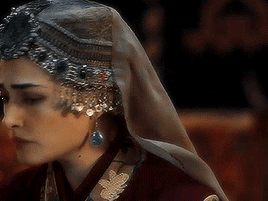
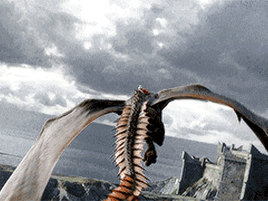
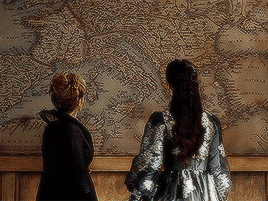
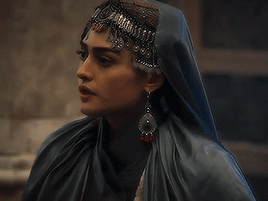


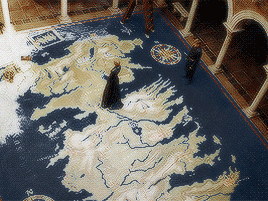

THE LADY OF DOR DAEDELOTH - Ancalúmë
Allied with the Dark Powers, Ancalúmë stood among the Maia and provided counsel to Morgoth. Steadfast in temper and wise in counsel, and cruelly terrible in fury, she served the fallen Valar.
#ocappreciation#ochub#allaboutocs#fyeahlotrocs#lotr oc#tolkien oc#hobbit oc#silmarillion#lotr#creations#creations: oc#oc: intro#oc: ancalume#this is just self indulgent <3
55 notes
·
View notes
Text
At the uprising of the great light the servants of Morgoth fled into Angband, and Fingolfin passed unopposed through the fastness of Dor Daedeloth while his foes hid beneath the earth. Then the Elves smote upon the gates of Angband, and the challenge of their trumpets shook the towers of Thangorodrim; and Maedhros heard them amid his torment and cried aloud, but his voice was lost in the echoes of the stone.
-- Of the Return of the Noldor
This is fine. This is absolutely fine.
11 notes
·
View notes
Photo
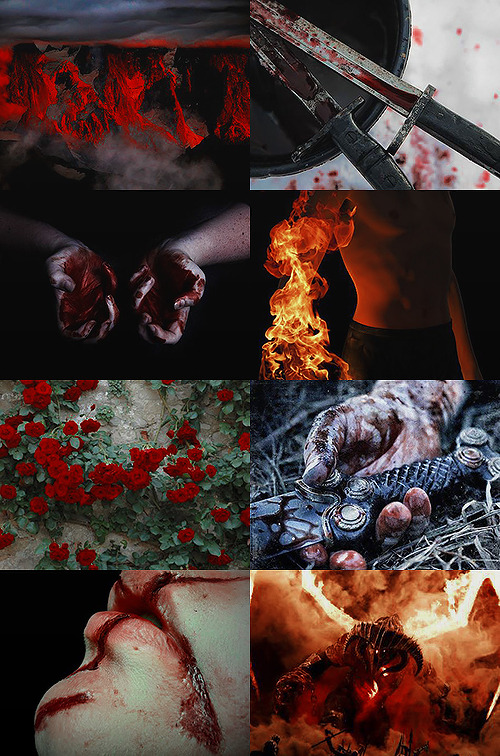
Deaths in the legendarium: Fëanor
There upon the confines of Dor Daedeloth, the land of Morgoth, Fëanor was surrounded, with few friends about him. Long he fought on, and undismayed, though he was wrapped in fire and wounded with many wounds; but at the last he was smitten to the ground by Gothmog, Lord of Balrogs but he had neither burial nor tomb, for so fiery was his spirit that as it sped his body fell to ash, and was borne away like smoke; and his likeness has never again appeared in Arda, neither has his spirit left the halls of Mandos. Thus ended the mightiest of the Noldor, of whose deeds came both their greatest renown and their most grievous woe.
131 notes
·
View notes
Text
The Exchange of Courtesies
https://ficbook.net/readfic/6544987/22311870
Translator's here 💝👇
'If you think that we have nothing to discuss, you're seriously mistaken.'
'Words have spreaded as shatters of the former glory of Ñoldor people in the hall, and, alas, no one would be able to to collect all of them now.'
'Are you allowing yourself to say these bold words of yours whilst being so confident in my generosity and forbearance?'
'You depend on me, thus you'll have to forbeare quirks of mine. Sadly, I suppose.'
'You can't even imagine to what extent.'
Two Ñoldor were not looking at each other whilst pointedly looking only at patterns on columns and at the view behind windows. Two voices: one that was faint and husky and another one which was beautifully flowing, — were appearing one by one after each pause.
'Aren't you afraid to be at one place with me without any guards?' Maedhros snarkily remarked whilst he was approaching the painting of Narnis.
'The necessity of this conversation without witnesses is outweighing my possible irrational fears,' Ñolofinwë was still looking at nothing happening behind the window when he indifferently replied.
'However, everyone knows that I'm here. What's the point in secretiveness?'
'Yes, everyone knows that you're here. Don’t you have a clue what is the reason?'
Maedhros gave no answer while he was still looking at the picture, examining the painting of his daughter and then the elegant frame.
'I want those who are loyal to me to know the person on whom they’ll take revenge after my death,' the king explained.
'It's very presumptuous to proclaim that there’ll be anyone who would like to risk their life for a deadman,' Fëanarion's voice unpleasantly changed.
'For the one who is alive — just a few will make a heroic act either,' High Ñoldoran still was not looking at his nephew, 'yet, heroes exist.'
'Alright,' Maedhros laughed with malice when he looked upon Finwë's portrait, 'I'll keep in mind that I need to secretly kill you and avoid bragging about how I freed the people of Ñoldor from shameful authority of usurper.'
'And what kind of authority do betrayers and brother killers deserve?' Ñolofinwë innocently wondered while deadly staring at one and the same point somewhere near the fountain at the square.
'I would've asked why do you, such a bright shiny ruler, need these disgusting people who possess no honour,' Fëanor was again mocking him, 'who are stained with the blood of innocents and who rejected wondrous Valar. However, the answer is clear for me.'
For the first time, during this painfully long and tense conversation, the king turned to the one with whom he spoke. Ñoldoran's eyes were blazing with hate, though he was smiling.
'You're wrong,' Ñolofinwë said in an unnatural voice. 'Again. And it's nor the first nor the last time. You ain't right if you think that I have so much lust for power, that I am eager to rule over anyone, as long as I could conquer more lands. You might not believe me though you more than anyone else know the value of a manuscript, and I'm willing to make one of those for you. Right now.’
High Ñoldoran seated himself at the table and smarmily straightened paper by pretentiously pressing its edges with copper soldiers to the table; he leisurely put a beautiful quill, that was shining with blue and green, in ink and started to slowly write tenguas along with reading out loud what he has written.
'So you want to tell me,' Maedhros's lips that were crossed by almost invisible scars stretched his mouth corners in a smile though the upper part of his face remained emotionless, 'that you're not going to claim Morgoth's lands after winning? What an interesting state of affairs.'
'You'll be able to live there and name yourself as you would like,' Ñolofinwë explained calmly.
'Dor-Daedeloth, the Land of Fear and Terror, will obtain a new ruler,' Fëanorian came extremely closely and put his hands, one of which was a real hand and another — a mechanical one, even though they both looked identical in gloves, on the table, 'the Lord who is servant of High Ñoldoran. Are you still trying to convince me that lands of Morgoth won't become yours?'
'Are you so sure that I need the North domain, behind the Iron Mountains?'
'I guess, no. However, by widening borders of your domain on the world map you won't be the second by size of kingdoms in Beleriand anymore.'
High Ñoldoran looked up with a tired glance.
'Aren't you capable of speaking with me nicely?' he asked his nephew. 'Maybe, you could at least try?'
'Try to force me,' Maedhros was still terrifyingly teething, and Ñolofinwë shook his head.
'That is why, Finwë The Third,' Ñoldoran signed, 'I wanted to talk with you in person: were any witnesses present here, I would've had to force you to be polite and respectful with your king. But when we are being heard by no one, the main thing for me is that you learn what is necessary for you but how you will respond to this will stay between us.'
'Or, you are just ashamed to say in front of witnesses that you want to send me and other war heroes along with their families to the uninhabitable lands.'
The glance of the ruler expressed the sincerest confusion.
'It was only a poor joke, Maedhros,' Ñolofinwë explained even calmer than before. 'You were telling me that Morgoth's army will be crushed in the Battle Under the Stars,however, yet after ten years…' Ñoldoran laughed with sadness. 'One day, I will get used to counting years by the calendar of new luminaries but now there’s no time for it. Just imagine, Maedhros, within just ten years these beasts multiplied behind the Iron Hills to that extent that they wiped out Kano's army and flooded the North of Beleriand. You think that something like this can possibly happen on the hollow frozen ground?’
'Morgoth is one of Valar,' Fëanorian reminded this as soon as he noticed that the conversation was getting uncomfortable.
'Manve was saying that Morgoth can't create life by his own will: he requires the use of existing shapes and only then can he change them. Distort them. Turn them evil. He can't create an horde of Orcs and provision for them out of nothing.'
'For this, Morgoth needs help from Mother of Plants and Animals, am I right?' Maedhros asked a question whilst enjoying the effect that he made: Ñolofinwë became really scared and could not pull himself together. 'You don't like the thought of us battling against all of Valar, do you?'
'But you, I see, are entertained by your own exclusive braveness,' Ñoldoran gathered the courage. 'However, if you're right and Morgoth is only the tip of the spear that directed the whole Aynur army at us, then what's the point of the siege? If we’re lacking resources...'
'Valar aren't almighty,' Fëanorian repeated his father's words, 'otherwise, Orcs wouldn't settle down outside of the lands of their precious protector.'
'Or they're as insane and lusty for power as I'm,' Ñolofinwë smiled widely, 'so they're also drawing extensive non-existent borders on maps. But we got distracted. If the siege won't bring us victory through starving them out, what'll be your plan, the future king of the most dreadful lands of Arda?’
'We'll be defending the borders whilst at the same time working on creating weapons that can crush mountains. There'll be no other way to reach Morgoth.'
'We'll be wasting time, and Orcs will again multiply in numbers.'
Maedhros nodded though in truth he was concerned by another matter: Himring’s Lord imagined how he would be walking through burned down by war, soaked in blood and covered with corpses of his friends and enemies — Land of Fear that would be devastated and dead and uslovno belonging to him. He realised that it was not the future that could have been a goal worth to be earned by fighting.
'Brothers of yours aren't joining the siege?' High Ñoldoran asked the question at the most right time. 'Are they withholding their armies until your victory? What is the reason, in your opinion?'
'Silmarils are three in number but there are seven of us,' the unwanted thought reminded him again about the inaction of his family during the capture.
'I would've advised you to insist on them joining your army,' Ñolofinwë continued to speak whilst looking in the eyes of his nephew. 'And then, on leaving them at the most dangerous frontiers. Though, of course, only wicked usurpers will do this, whereas honest followers of fratricide will never stoop to such plots.'
Maedhros made a sound of annoyance but remained silent and just walked away from the table.
‘Is the exchange of courtesies finished?’ High Ñoldoran asked. ‘Will we be able to discuss our plans and prepare lists of required resources in presence of advisers?’
'Perhaps,' Fëanoring responded while glancing again at the portrait of his daughter, 'Ard-Galen needs me, and the sooner I’ll return it’ll be better.'
Arts by ~Letavia Gayle
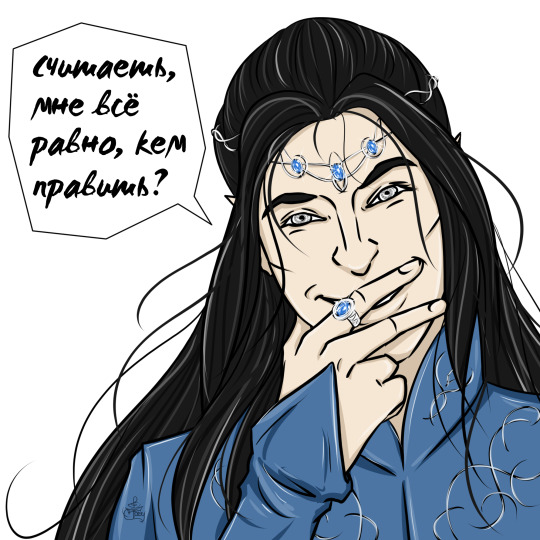
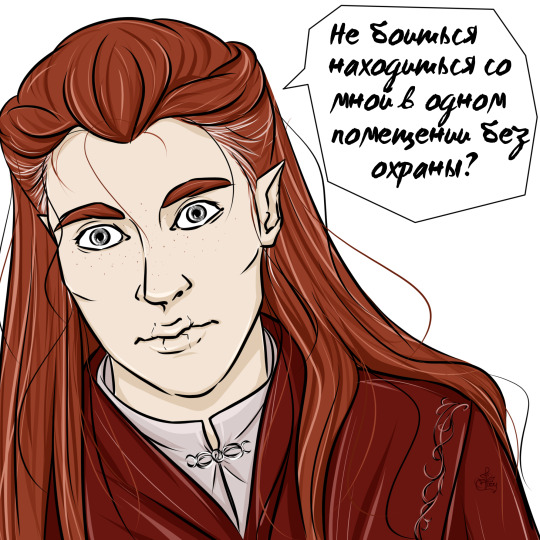
3 notes
·
View notes
Text
Other songs inspired by books/comics/movies/whatever
Yes, I have quite a few! Once again, thanks to @drondskaath for some of the suggestions!
The Lord of the Rings:
-Guardians of Lothlόrien, Dragon Steel
-Gathering in Dol Guldur (full album), Durthang
-Mount Gundabad, Durthang
-The riders of Rohan, Durthang
-When the Istary wizards appeared in Middle Earth, Equitant
-On the wings of Gwaihir, Galadriel
-My mind in Mordor, Lothlöryen
-Hobbits’ song, Lothlöryen
-One Ring, Lothlöryen
-Éowyn, Metal Tribute to Tolkien
-Sauron’s fury, Metal Tribute to Tolkien
-Rivendell, Metal Tribute to Tolkien
-Power of darkness, Metal Tribute to Tolkien
-Istari, Metal Tribute to Tolkien
-Khazad-dûm, Metal Tribute to Tolkien
-Dark army, Metal Tribute to Tolkien
-Cirith Ungol, Nargothrond
-The nine spectres of the Ring, Nargothrond
-Gondor’s bane, Nargothrond
-Some orcs never yield, Nargothrond
-The fiery banners of Harad, Nargothrond
-Yrch, Nargothrond
-Rivendell, Vordven
-Erc’h, Moriquendi
-Bad hobbits die hard, Wuthering Heights
-Lament for Lόrien, Wuthering Heights
-Into the fire, Don’t Drop the Sword
-In the shadow of Dol Guldur, Rasthir
The Silmarillion:
-Carcharoth (Gwareth en Angband), Carcharoth Λ. V.
-Armies of Valinor, Galadriel
-Fog in the hills of Anor, Maglor
-Magic of the Eldar, Metal Tribute to Tolkien
-Canción para Beren, Metal Tribute to Tolkien
-Grond (hammer of the underworld), Nargothrond
-To walk the Dor Daedeloth, Nargothrond
-Upon the mound of slain (Haudh-En-Ndengin), Nargothrond
-Wings of Ancalagon, Nargothrond
-Halls of awaiting, Nargothrond
-Nienna’s cry, Daedeloth
-Nirnaeth, Moriquendi
-Age of Arda, Rasthir
Twilight zone:
-Twilight zone, Iron Maiden
Murders in the Rue Morgue:
-Murders in the Rue Morgue, Iron Maiden
2 notes
·
View notes
Note
So Feanor, how exactly DID you manage to get snuck up on by Balrogs? Like... explain how 20ft of shadow and flame blended with the scenery.

« I shall not explain it, for it did not happen, you insolent little thing. Verily, they approached on the field, and I spurred my horse ahead to meet their charge. »
Real meta time:
there’s in fact no hint whatsoever that Fëanor was ambushed. The text just says:
Thus it was that he drew far ahead of the van of his host; and seeing this the servants of Morgoth turned to bay, and there issued from Angband Balrogs to aid them. There upon the confines of Dor Daedeloth, the land of Morgoth, Fëanor was surrounded, with few friends about him.
So yeah, it seems that the Balrgos just sort of… approached in full sight. So if you are asking whetherFëanor saw them and did not give a fuck? The answer in my opinion is, yes, he absolutely saw them and did not give a fuck.
Nothing did he know of Angband or the great strength of defence that Morgoth had so swiftly prepared: but even had he known it would not have deterred him, for he was fey, consumed by the flame of his own wrath.
Edit: all the more articulated versions of this passage under the cut. They mostly all repeat the same thing and support the published Silmarillion’s version.
But the victory was marred by the fall of Feanor. He advanced unwarily upon Bladorion, too hot in pursuit, and was surrounded when the Balrogs turned to bay in the rearguard of Morgoth. Very great was the valour of Feanor, and he was wrapped in fire; but at length he fell mortally wounded by the hand of Gothmog, Lord of Balrogs. But his sons bore him back to Mithrim, and he died there, reminding them of their oath. To this they added now an oath of vengeance for their father.
For Feanor advanced unwarily upon Bladorion, pursuing the Orcs northward, and he was surrounded, when his own folk were far behind, but the Balrogs in the rearguard of Morgoth turned suddenly to bay. Feanor fought undismayed, but he was wrapped in fire, and fell at length wounded mortally by the hand of Gothmog, lord of Balrogs, whom Ecthelion after slew in Gondolin. But his sons coming rescued him and bore him back to Mithrim. There he died, but was not buried; for so fiery was his spirit that his body fell to ash as his spirit sped; and it has never again appeared upon earth nor left the realm of Mandos. And Feanor with his last sight saw afar the peaks of Thangorodrim, greatest of the hills of Middle-earth, that towered above the fortress of Morgoth; and he cursed the name of Morgoth thrice, and he laid it on his sons never to treat or parley with their foe.
For the heart of Feanor, in his wrath against the Enemy, blazed like a fire, and he would not halt, but pressed on behind the remnant of the Orcs, thinking, it is said, so to come at Morgoth himself. And he laughed aloud as he wielded his sword, and rejoiced that he had dared the wrath of the Valar and the evils of the road that he might see that hour of his vengeance. He knew naught of Angband or the great strength of defence that Morgoth had so swiftly prepared; but had he known, it would not have deterred him, for fey he was, consumed by the flame of his own wrath. Thus it was that he drew far ahead of the van of his host, and seeing this the servants of Morgoth turned to bay, and there issued from Angband Balrogs to aid them. There upon the confines of Dor Daedeloth, the land of Morgoth, Feanor was surrounded, with few friends about him. Soon he stood alone; but long he fought on, and laughed undismayed, though he was wrapped in fire and wounded with many wounds. But at the last Gothmog,* Lord of the Balrogs, smote him to the ground, and there he would have perished, but Maidros and three other of his sons in that moment came up with force to his aid, and the Balrogs fled back to Angband.
#dryhtenhold#answered.#lore.#[granted they might have had wings too#OR the mountain terrain still kinda covered them#but still#also I should check if there's anything in the other versions that might support an ambush diea#*idea even#but that's the published silmarillion's word on it]
15 notes
·
View notes